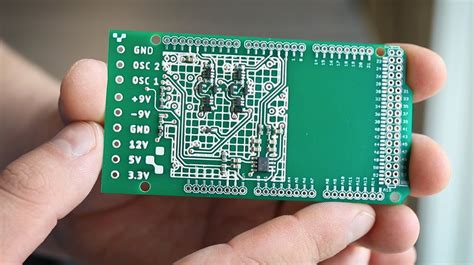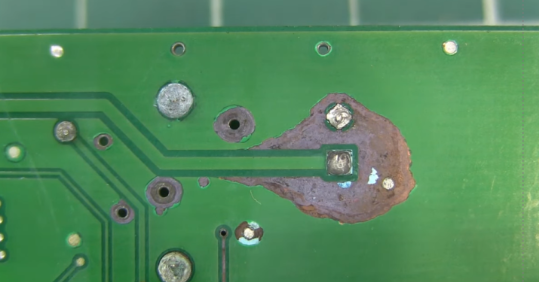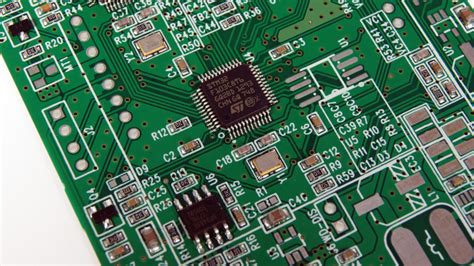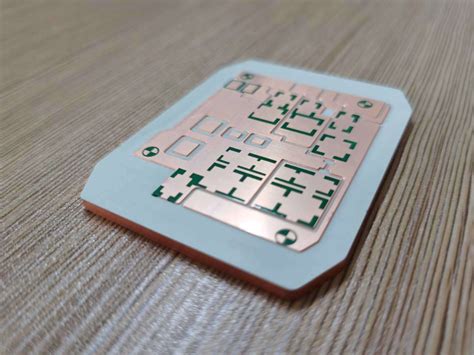The Essential Guide to Choosing an Electronic PCB Assembly Manufacturer
Key Takeaways
Choosing the right electronic PCB assembly manufacturer can have a significant impact on the success of your project. It is essential to understand the overall role of a pcb assembly partner, as this relationship will directly influence both the quality and efficiency of your production process. One of the first steps is to consider the specific capabilities and technologies a manufacturer offers; look for those who utilize advanced equipment and establish quality control protocols that ensure consistent outcomes.
Moreover, be aware of industry standards and certifications, as these often indicate reliability and adherence to best practices within the field. Effective communication regarding project goals, timelines, and specifications is another important aspect; clearly articulating your needs can lead to better alignment with your manufacturer’s processes. As balances of cost vs. quality are often at play, it’s vital to seek a partner who can meet both budget constraints and quality expectations without compromise.
Many manufacturers have demonstrated their reliability through past successes; studying case studies can provide insights into how they handle specific challenges or requirements in their operations. When all factors are considered holistically, you create a strong foundation for a successful partnership in your next pcba project.
“The best partnerships result in shared values and goals.”
Understanding the Role of an Electronic PCB Assembly Manufacturer
An electronic PCB assembly manufacturer serves a pivotal function in the development of electronic devices, acting as a bridge between design and production. Their primary responsibility revolves around turning printed circuit board (PCB) designs into functional assemblies through a process known as PCB assembly or PCBA. This process encompasses several critical steps, including component placement, soldering, and testing, ensuring that each assembly aligns with the specified design parameters. A reliable manufacturer not only adheres to strict industry standards but also utilizes advanced technologies and equipment to guarantee precision and efficiency. Understanding the role of these manufacturers means recognizing their capacity to influence the overall quality and performance of electronic products. Properly executed pcb assembly can significantly reduce defects and improve functionality, ultimately impacting time-to-market for new devices. Additionally, these manufacturers often engage in collaborative efforts with clients to troubleshoot challenges during production, signifying their role as strategic partners in the product development lifecycle. Consequently, selecting a capable electronic PCB assembly manufacturer is crucial for achieving optimal results in your electronic projects.
Key Considerations in Choosing a PCB Assembly Partner
When selecting an electronic PCB assembly manufacturer, it’s essential to evaluate several key considerations that can significantly impact the success of your project. The first factor is technical expertise. Assess whether the manufacturer possesses knowledge in the specific area of pcb assembly required for your project, such as surface mount technology (SMT) or through-hole assembly. This ensures they can handle the complexity and specifications of your design.
Next, consider their production capacity. It’s vital to determine whether the manufacturer can meet your volume needs within the timeline required. This brings us to the importance of lead times, as delays in production can set back project schedules and impact product launch dates.
Another critical consideration is quality assurance practices. Effective quality control measures should be in place to minimize defects and ensure that each pcba meets established standards. Manufacturers that are ISO certified or hold other relevant certifications often have higher quality controls.
Finally, don’t overlook the manufacturer’s ability to provide support. This includes technical assistance, design feedback, and post-manufacturing services such as testing and prototyping. Establishing clear communication channels early on can ensure smoother collaboration.
| Consideration | Importance |
|---|---|
| Technical Expertise | Ensures proper handling of technology |
| Production Capacity | Meets volume and timeline requirements |
| Quality Assurance Practices | Minimizes defects, ensures standards |
| Support & Communication | Facilitates collaboration and feedback |
By keeping these considerations at the forefront, you will be better prepared to choose a PCB assembly partner who aligns with your project goals and delivers quality results consistently.
Industry Standards and Certifications to Look For
When selecting an electronic PCB assembly manufacturer, it is crucial to consider the industry standards and certifications they uphold. These benchmarks not only reflect the quality of their processes but also indicate their commitment to excellence in PCB assembly. Look for manufacturers that meet standards such as IPC-A-610, which governs the acceptability of electronic assemblies, and ISO 9001, a certification that ensures a solid quality management system is in place. Furthermore, certifications like ISO/TS 16949 can be significant if your project is related to the automotive industry, as this standard emphasizes continual improvement and defect prevention. Additionally, check for any specific certifications related to environmental sustainability, such as RoHS compliance, which ensures that hazardous substances are restricted in electronic components. These certifications are not just formalities; they serve as indicators of a manufacturer’s capability to deliver high-quality PCBA services while minimizing risks associated with reliability and component failure. Ensuring your manufacturer has these qualifications can greatly enhance the success of your project while aligning with best practices in the industry. By becoming familiar with relevant standards, you can make more informed decisions when choosing a partner for your electronic projects.
Evaluating Manufacturer Capabilities and Technologies
When choosing an electronic PCB assembly manufacturer, it’s crucial to evaluate their capabilities and technologies to ensure they align with your project’s specific needs. A key aspect of this evaluation is understanding the various technologies used in the pcb assembly process. Modern manufacturers often utilize advanced techniques such as surface mount technology (SMT), which allows for higher density and improved performance of printed circuit boards (PCBs). It’s important to inquire about their machinery, as precise and sophisticated equipment can significantly enhance the quality of the final product.
Moreover, assessing the manufacturer’s ability to handle design complexities is essential; they should demonstrate proficiency in various types of pcba, ranging from simple designs to intricate multilayer boards. Investigating their production capabilities, such as volume scalability and lead times, can also help you determine if they can meet your deadlines without compromising quality.
In addition, consider requesting information on their engineering support services. A manufacturer that offers robust engineering capabilities can provide valuable insights during the design stage and assist in optimizing your product for manufacturability. This collaboration not only helps in minimizing production issues but also serves to ensure that the assembled units meet durability and performance standards.
Lastly, don’t overlook the importance of seeking feedback from previous clients about a manufacturer’s technological expertise and overall service reliability. Understanding how they have coped with challenges in past projects will provide immense insight into their true capabilities in delivering high-quality pcb assembly solutions.
Importance of Quality Control in PCB Assembly
Ensuring quality control in pcb assembly is crucial for the success and reliability of electronic projects. Poorly assembled pcba can lead to malfunctions, increased costs, and potential safety hazards. A dedicated focus on quality control involves several strategies, including rigorous testing procedures, continuous monitoring throughout the assembly process, and adherence to strict industry standards. Manufacturers should implement statistical process control (SPC) techniques to identify variances in the production process that may affect the quality of the pcba. It’s also essential for manufacturers to conduct regular audits and inspections and maintain comprehensive documentation of their quality practices. By prioritizing quality control, companies not only enhance the performance and durability of their electronic devices but also build trust with clients, establishing themselves as reliable partners in the industry. As such, selecting a manufacturer that is committed to excellence in quality assurance can significantly impact a project’s overall success.
Tips for Communicating Your Project Needs Effectively
Effective communication is crucial when collaborating with an electronic PCB assembly manufacturer. To ensure that your project requirements are clearly understood, begin by drafting a comprehensive project brief. This brief should outline your specific needs, including details about the PCB assembly specifications, design files, and any expected performance criteria. Additionally, articulating the intended application of the PCBA can provide valuable context that helps manufacturers tailor their services to meet your requirements.
It’s equally important to prioritize clarity when discussing lead times and delivery schedules. By setting realistic timelines and expressing any flexibility you may have, you can foster a stronger partnership with your PCB assembly provider. Don’t hesitate to ask for clarifications or confirmations on any points that seem ambiguous; this back-and-forth will help eliminate misunderstandings.
Furthermore, maintain an open line of communication throughout the entire production process. Regular updates and feedback sessions can significantly enhance the collaboration experience and improve the final output’s alignment with your expectations. Remember that a well-informed manufacturer is more likely to deliver high-quality work, fostering trust and reliability in your electronic projects. Lastly, documenting all agreements and decisions made during conversations ensures all parties are on the same page and provides a reference point should any questions arise later in the project lifecycle.
Cost vs. Quality: Finding the Right Balance
When selecting an electronic PCB assembly manufacturer, achieving the optimal balance between cost and quality can be a daunting task. In many cases, businesses are tempted to opt for the lowest bid to maximize their profit margins; however, this can lead to compromised quality in the final product. It’s crucial to understand that PCB assembly processes demand precision and reliability, as any defects can carry significant costs down the line. Investing in high-quality PCBA services often translates to better performance and fewer revisions throughout the manufacturing cycle, ultimately saving money in long-term production costs.
To navigate this delicate balance, consider evaluating potential manufacturers not solely on their pricing structure but also on their track records in quality assurance. Look for companies that adhere to industry standards and have robust quality control measures in place. Additionally, speaking with past clients can provide insights into how these manufacturers managed to balance cost with high-quality outcomes. Remember that a PCB assembly partner who prioritizes quality may come at a higher upfront cost but could prove invaluable through enhanced reliability and customer satisfaction over time. Emphasizing value rather than just price will guide you in finding an assembly manufacturer that aligns with your specific project needs while ensuring exceptional results.
Case Studies: Success Stories with Reliable Manufacturers
In the realm of PCB assembly, several success stories illuminate the impact of partnering with dependable PCB assembly manufacturers. One notable case involves a tech startup that sought a reliable PCBA partner to bring their innovative wearable device to market. Initially overwhelmed by the multitude of options, they narrowed down their choices based on thorough evaluations of potential manufacturers. By prioritizing those with proven track records, strong industry certifications, and advanced manufacturing technologies, they ultimately chose a manufacturer renowned for its quality control processes. The collaboration not only met their tight timelines but also exceeded their expectations in quality and performance, leading to successful product launches that gained positive market reception.
Another example can be drawn from an established automotive company that required high-reliability circuit board assemblies for its electric vehicles. They faced challenges when an earlier partnership failed to deliver consistent quality. After conducting a comprehensive assessment that focused on specific metrics related to experience and capacity, they transitioned to a more reputable provider. This new manufacturer implemented rigorous quality assurance protocols and real-time monitoring systems that enhanced their production line’s efficiency and reliability. As a result, the automotive company reported significant reductions in product defects, boosting confidence in their new models among consumers.
These success stories emphasize the critical importance of choosing the right electronic PCB assembly manufacturer. By aligning project needs with manufacturer capabilities and maintaining clear communication throughout the development process, companies can achieve remarkable outcomes while ensuring their projects remain on schedule and within budget.
Conclusion
In summary, selecting an electronic PCB assembly manufacturer is a critical step that directly impacts the success of your electronic projects. The landscape of pcb assembly services is vast, and it is essential to consider various factors such as industry standards, technology capabilities, and quality control processes. The importance of choosing a manufacturer who not only meets your cost requirements but also ensures the reliability of your pcba should not be underestimated. Additionally, effective communication about your project needs can foster a productive partnership and lead to superior outcomes. By focusing on these key aspects, you will be better positioned to find a manufacturer that aligns with your vision and technical requirements, ensuring both quality and efficiency in your product development cycle.
FAQs
What is PCB assembly?
PCB assembly, often referred to as PCBA, is the process of connecting electronic components to a printed circuit board (PCB) to create a functional device or electronic system.
Why is choosing the right PCB assembly manufacturer important?
Selecting the right electronic PCB assembly manufacturer ensures that your products meet industry standards, are delivered on time, and maintain a high level of quality and reliability. This is crucial for the overall success of your electronic projects.
What should I look for in a PCB assembly manufacturer?
Considerations include their experience in the industry, capabilities in handling various types of pcb assembly, adherence to industry standards and certifications, and their quality control processes.
How can I ensure quality control in my PCB assemblies?
Quality control can be ensured by selecting manufacturers that implement rigorous testing protocols and quality assurance processes throughout the PCBA manufacturing lifecycle. Be sure to inquire about their specific testing methods.
Are certifications important for PCB assembly manufacturers?
Yes, certifications such as ISO 9001 or IPC standards reflect a manufacturer’s commitment to maintaining quality procedures and meeting customer expectations within the pcb assembly process.






